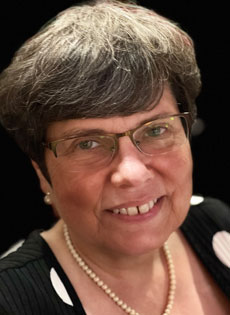
Can Church learn from Disney 'magic'?
Wednesday, August 6, 2025
Ana Rodriguez Soto
When our children were toddlers, we began taking them to Disney World. We would buy one of those annual passes and make good use of it, traveling to Orlando as many as four times a year.
It got to the point where I thought we were overdoing it. Not that our children did not like Disney, but as they got older they made it known they preferred to spend the weekend hanging out with their friends instead of us and “the Mouse.”
Our annual Disney trips stopped near the end of their high school years and none took place while they were in college. I thought for sure they would never want to go back, having seen the Disney parks so many times.
But after college, my son moved to Orlando for work. Now he and his wife are annual passholders and visit the parks much more than once a month. They go for dinners after work. They run the half marathons and the 5K. They check out EPCOT during the Food & Wine Festival and other seasonal events.
Last year, our daughter also started the tradition of taking her son to Disney for his birthday, even though they live in another state. He just turned two and we went again this year – despite the price tag for non-Florida residents.
This got me thinking. Why aren't they tired of "the Mouse"? What "magic” keeps them coming back? And why is the same thing not happening around church?
We also used to take our children faithfully to Mass every Sunday (actually, the vigil Mass on Saturdays). They went through 13 years of Catholic schools, from kindergarten through 12th grade. Our son served at the altar and as an usher; our daughter served as a lector and extraordinary minister of holy Communion. In high school, she also took part in and led student retreats.
They never complained about having to go to church. But then, after high school, they stopped going, just as with Disney. The difference is they have not returned.
And they are not the only ones. According to a survey released in January 2024 by the Pew Research Center, 40% of those aged 30-49 – roughly my children's millennial generation – identify as "nothing in particular” in terms of religion – the so-called "nones." Almost half of them (49%) say they adhere to a generalized “spirituality” rather than the specific tenets or practices of the faith in which they were raised.
The reasons for that are many and varied but the trend is clear.
It is, of course, unfair – perhaps even blasphemous – to compare Church to Disney. Faith is much deeper than a fun day in the Magic Kingdom. But what is it about the faith, or the Church, that fails to keep young people attracted – or attached?
Were their religion classes more academic than spiritual? Did they somehow get the message that faith and church-going were an obligation rather than a deeply felt desire? Have they bad memories of their time in church? Were they bored? Did they find the rites and rituals meaningless? Did they sense or experience a disconnect between the Church's moral teachings and fellow church-goers’ actions – especially after the clergy sexual abuse scandal?
Although the latest Pew research shows this impulse toward non-religiosity seems to have plateaued, Pew also notes that it is not likely that those who left the faith as young people will return once they grow older.
So what is the answer? I don't have it, but I can point to what I think are some clues.
We hear more and more Catholic young adults are reconnecting with their faith through attendance at the Latin Mass, with its emphasis on mystery and ritual. And I have always been impressed by the massive attendance at Holy Thursday and Good Friday ceremonies. These rites, and the mysteries they point to, seem to touch people deeply, in a way that draws them to church – despite the fact that attendance on those days is not an obligation.
I also think of Easter and Christmas Catholics, who tend to go to church in large family groups. Both parents and children come back for those holidays, in the same way many families go in large groups to Disney – most wearing matching T-shirts that make it quite obvious. Perhaps it's those memories of family togetherness that keep them coming back for those church celebrations?
The Church doesn't have the public relations machinery of Disney. Neither do we have a human resources office that trains "cast members” on how to adhere to the Disney ethos at all times.
But as Pope Benedict said, Christianity must be more than a "philosophy or a new form of morality.” It only "sticks” after “an encounter,” like St. Paul's, with a person: Jesus Christ.
Whether we learn from "the Mouse” or not, whether we emphasize mission over doctrine or mystery over dogma, today's Church – especially in the secularized First World – needs to find a way to make that “encounter” happen.


Comments from readers